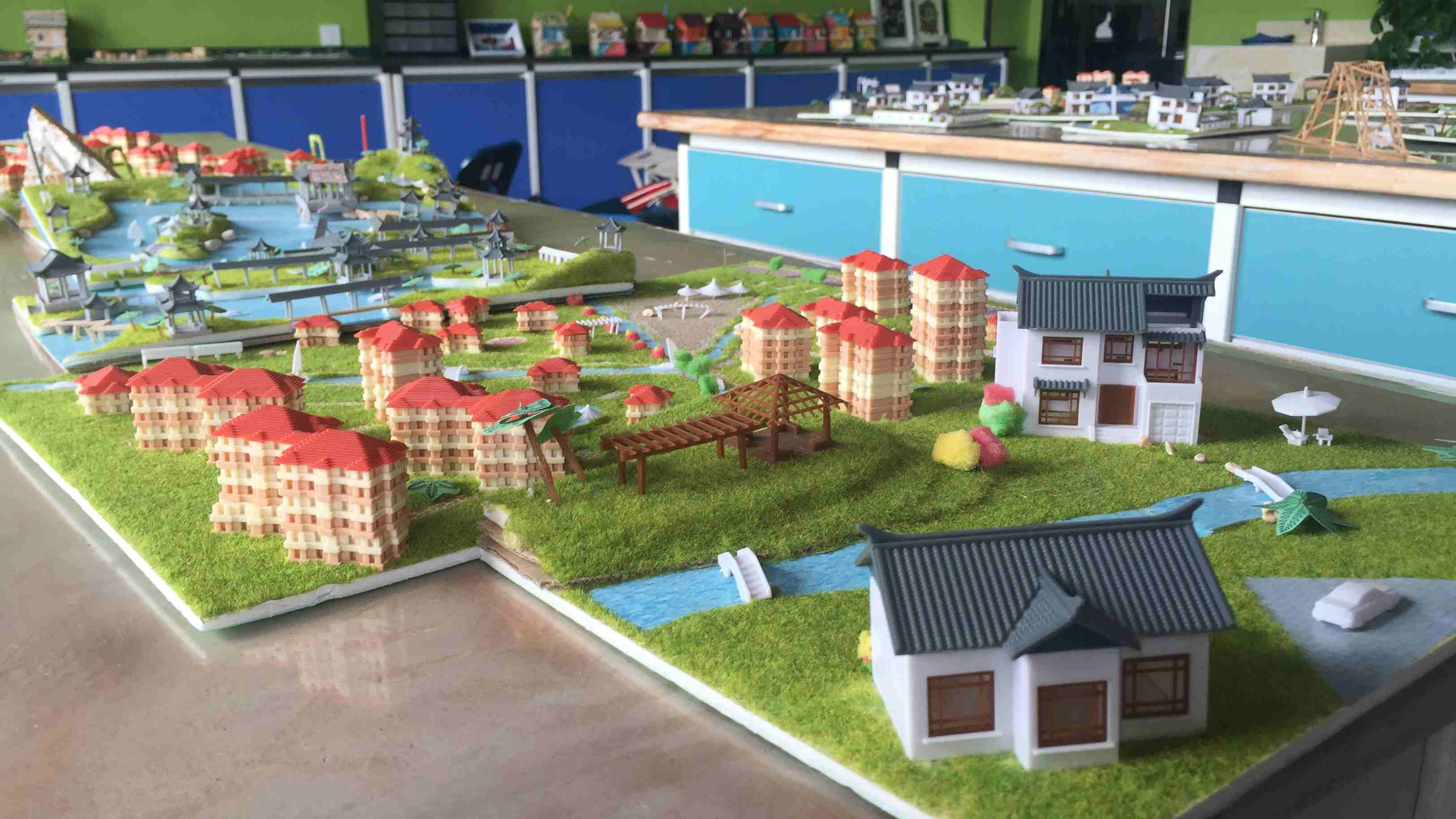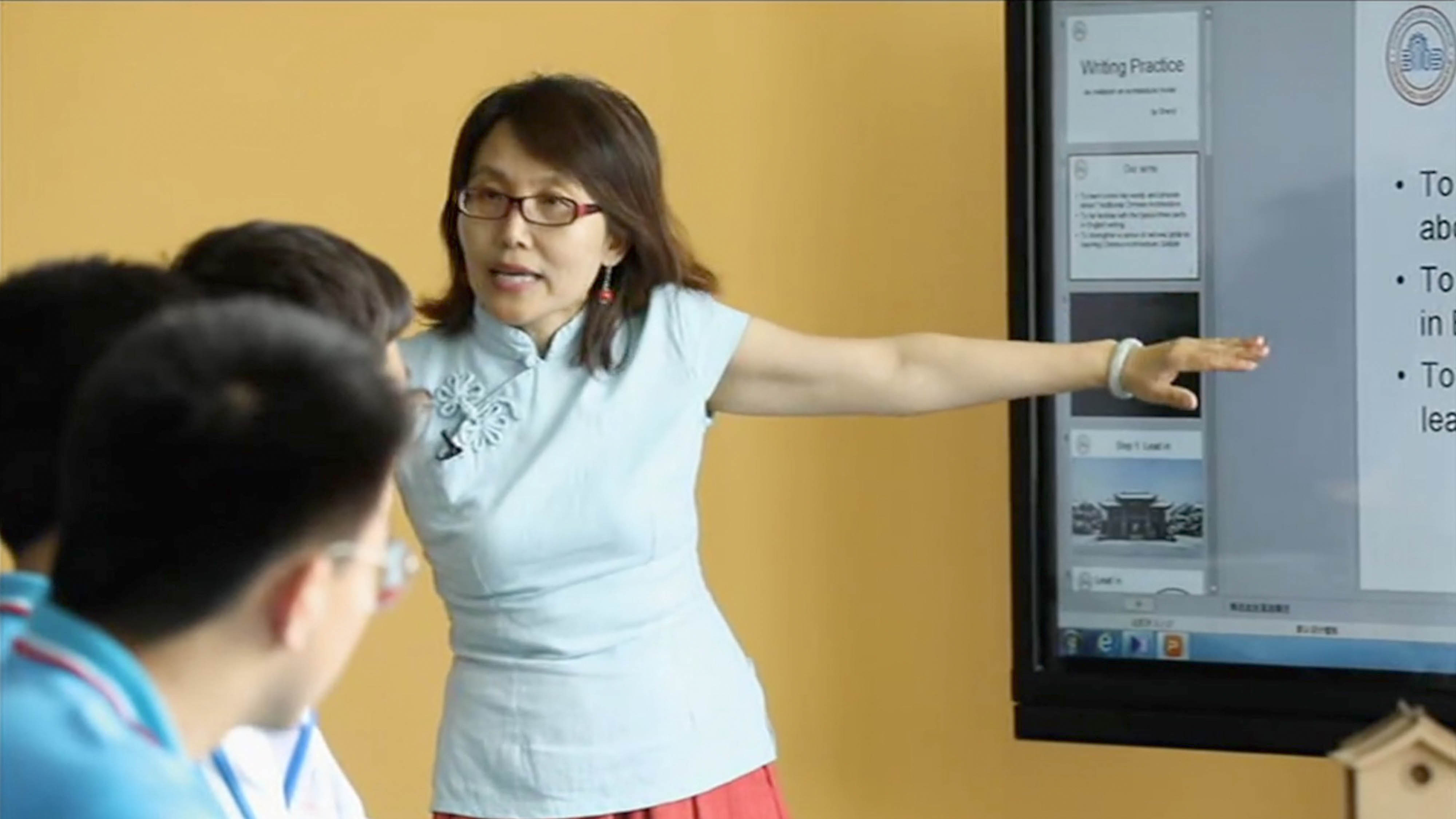
Education
08:11, 27-Oct-2018
Innovation in Education: The Hybrid Class
Updated
07:55, 30-Oct-2018
By Laura Schmitt

China's education system has an abiding reputation the world over for its authoritarian style. Teachers are often aloof figures, subjecting even young children to lengthy lectures which preclude virtually any classroom interaction. An approach that promotes rote learning and generates vast quantities of homework has been criticized for stifling children's creative thinking and social interaction.
Things are changing, though. At one school in central China, the staff are working to introduce more innovative approaches in their teaching style, and classes.
Chen Hong is a teacher at the 31st Middle School in Zhengzhou, capital of Henan Province. She has developed what she is claiming is a major innovation in Chinese education – a new hybrid class. In it, she combines the school's maker class, in which students build architectural models from scratch, with English writing.
"I felt that, of all of our various maker classes, the architectural model class in particular has the necessary cultural background for this new class," said Chen, "because the architecture of each period is closely linked to the politics, economy, history and culture it represents, and even to the geographical and climatic characteristics of a time period. So this class is cross-curricular and more open."
00:28

Chen Hong explains that she got the idea for the hybrid class, after observing the students struggling with their English writing assignment, which makes up a significant part of the gaokao, or national college entrance examination. They were, "quite literally at a loss for words." Her new class, she argues, provides a vital visual stimulus by connecting the act of building one's own model with the act of talking and writing about it.
It also introduces an element of fun into her lessons. However, it was this that brought her into conflict with some parents when she initially introduced the class. It was a struggle to convince them that the more relaxed approach wouldn't detract from the ultimate goal – of their children achieving the highest possible marks.
"In the beginning, there were a few parents who were opposed to this new method," said Chen. "But after one semester, when they saw their children's results steadily improve, that resistance disappeared."
Tang Runze, an alumnus of Chen's very first hybrid class of 2017, explains that he, too, though initially skeptical, was soon won over.
"In my mind, I think another way is better, but that is so boring," he said. "So, to me this model, it can improve our imagination and how to think in our minds, and it will let me know more about the traditional Chinese culture. I think it's very useful and for me it's very fun."
The driving force behind this push for more creativity in teaching is Shi Wenzhong, the school's headmaster. He cites, as his main motivation, Premier Li Keqiang's call for more innovation at Chinese schools.
"The promotion of traditional basic education in China is effective and will have a positive effect on social development, but its problem is it is too monotone," Shi said. "Therefore, we adapted the key points, difficulties and test subjects into project-based classes, which we carry out according to the STEAM education model. By creating their own products, the students have a deeper understanding of the learning process. Therefore, their understanding of team work, the understanding and mastery of instructions, have all improved."
"Rediscovering China" is a 30-minute feature programme offering in-depth reports on the major issues facing China today. It airs on Sundays at 10:30 a.m. BJT (02:30 GMT), with a rebroadcast at 11:30 p.m. (15:30 GMT), as well as on Mondays at 8:30 a.m. (00:30 GMT) and Fridays at 1:30 p.m. (05:30 GMT).

SITEMAP
Copyright © 2018 CGTN. Beijing ICP prepared NO.16065310-3
Copyright © 2018 CGTN. Beijing ICP prepared NO.16065310-3